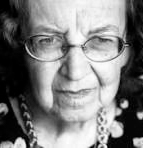

It was following the work undertaken with J. Beazley that M. H. da Rocha Pereira published the seminal work Greek Vases in Portugal (Rocha Pereira, 1962 = Rocha Pereira, 2016: 127–310), with new "Supplements" released in 1967 and 2008 (= Rocha Pereira, 2016: 311–319 and 321–329, respectively). Until the end of her life, the classicist never abandoned her interest and passion for Greek ceramics, remaining consistently updated on the subject and contributing to various publications in the field. Her study of Greek vases is particularly revealing of her extensive national and international connections, at a time when academic mobility was far from enjoying the ease it does today. Among her contributions, for instance, is the identification of the “Lisbon Painter,” a name suggested to her by a New Zealand colleague and expert on the subject, A. D. Trendall, due to her identification of the anonymous Greek painter.
When she returned from Oxford after her first stay in 1951, M. H. da Rocha Pereira was hired as an Assistant by the University of Coimbra. Five years later, in 1956, and following an extended eighteen-month wait for the scheduling of her public examinations, M. H. da Rocha Pereira became the first woman to earn a doctoral degree from that university. In 1962, she underwent public examinations for the rank of Extraordinary Professor, and in 1964, for Full Professor. Among the positions she held at her university were those of Vice-Rector, President of the Faculty of Arts’ Scientific Council, and Director of the Institutes of Classical Studies and Archaeology within the same Faculty. Professor Maria Helena da Rocha Pereira retired in 1995, at the age of seventy, as required by law. However, this only marked the end of her official teaching duties, as her dedication to scholarship, particularly to Classical Studies, continued almost until her death in 2017, during which she shared her knowledge and expertise with colleagues and students alike. M. H. da Rocha Pereira was responsible for the creation of a “school of Classical Studies” that extended beyond the University of Coimbra, in the purest and most rigorous sense of the term. This was evident primarily in Greek studies (history, culture, literature, and art), which were her chief passion, but also in Latin and Neo-Latin studies (medieval and Renaissance), as well as in the fertile field of identifying and analysing the enduring presence of classical culture in Portuguese literature.
This work is financed by national funds through FCT - Foundation for Science and Technology, I.P, in the scope of the projects UIDB/04311/2020 and UIDP/04311/2020.
